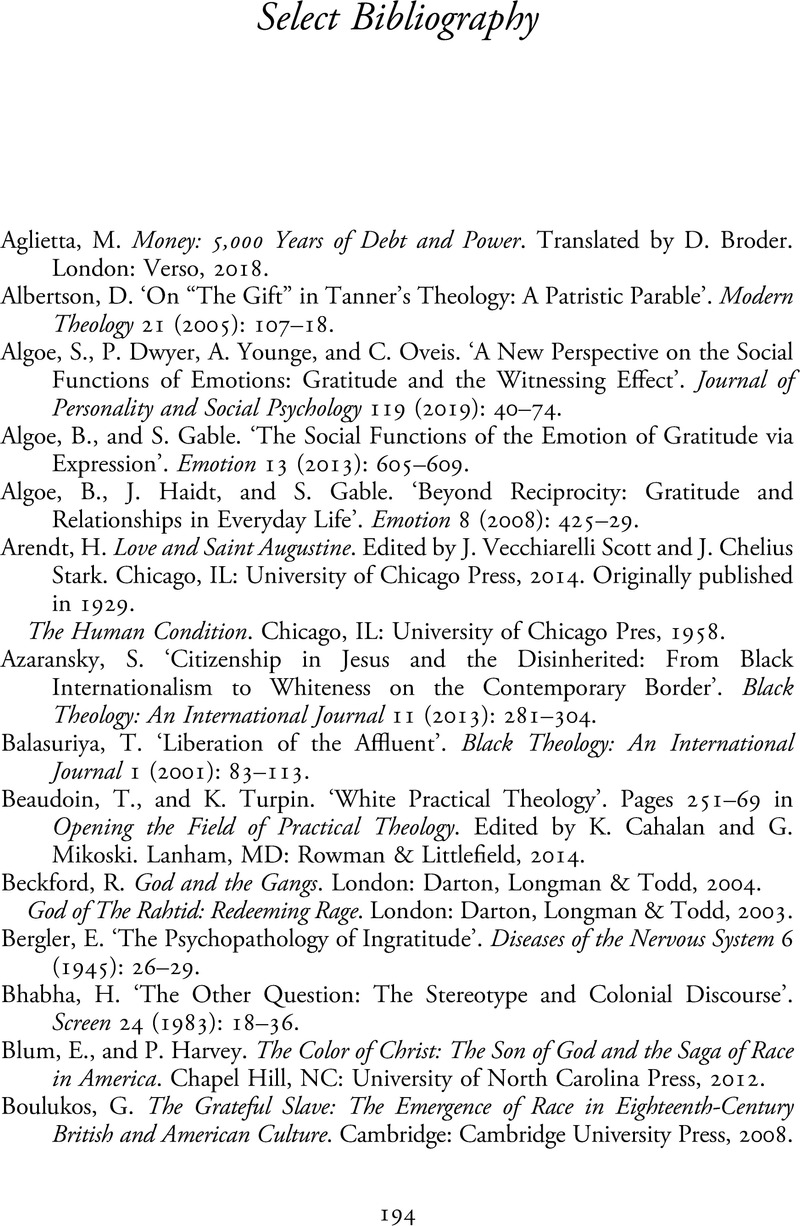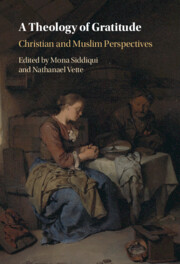Select Bibliography
Published online by Cambridge University Press: 16 December 2022
Summary

- Type
- Chapter
- Information
- A Theology of GratitudeChristian and Muslim Perspectives, pp. 194 - 201Publisher: Cambridge University PressPrint publication year: 2022

